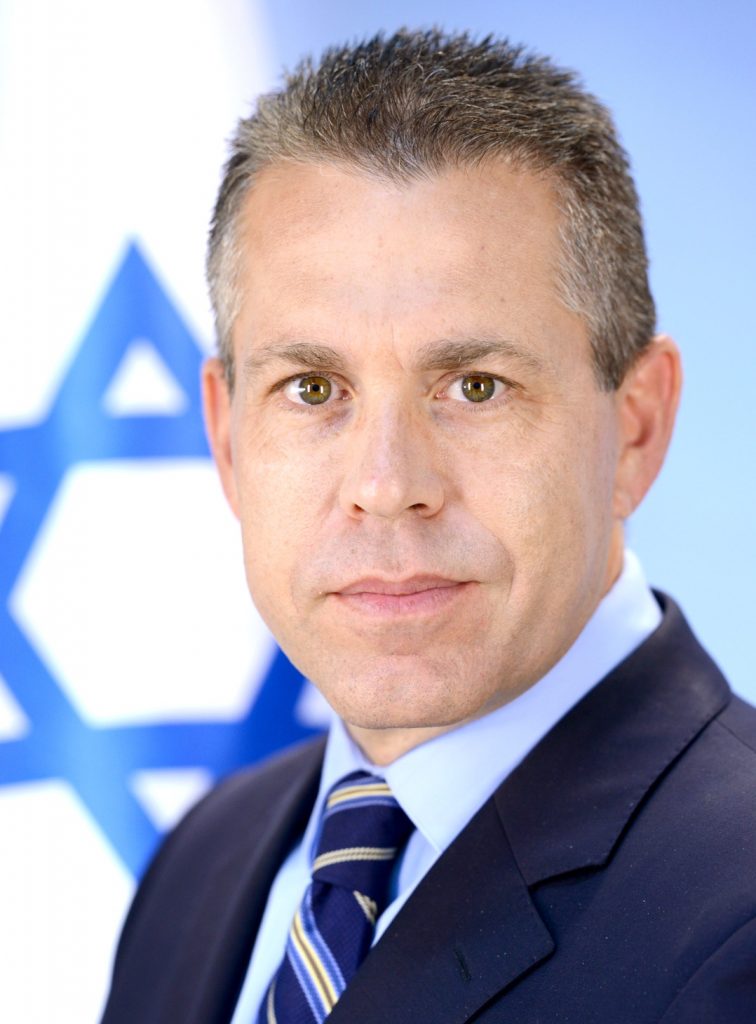Israel looks set to decriminalise the personal use of cannabis, it has been reported. During a news conference in Tel Aviv last Thursday, the nation’s Public Security Minister, Gilad Erdan, announced that he is adopting the recommendations of a panel that had been tasked with reviewing the matter.
The panel’s conclusions, that cannabis use should not be treated as a criminal matter, but should instead be ‘punished’ through the use of administrative fines, and discouraged through educational programmes, will need to be ratified by the cabinet, but that is expected to be a formality. Should the cabinet adopt the exact recommendations of the panel, cannabis users caught for the first time could expect to receive a 1000 shekel (£211) fine. The fine would double on the occasion of the second offence, with prosecution once again becoming an option after the fourth offence. Minors caught using cannabis would be offered the choice between a treatment programme and a criminal investigation.
Erdan explained that decriminalisation would mean that “Police will be able to redirect resources … away from normative personal users and focus instead on dangerous drugs,” but insisted that the move did not mean that he does not consider cannabis to be dangerous, and was adamant that education would be a key part of any new policy. “I do not take this issue lightly. Legitimacy to drug use has increased, and the number of users has increased. The awareness of the dangers and damages from regular use is dropping,” he said.
His words echoed the advice of the Israeli Justice Ministry, who have also called for decriminalisation in recent weeks. “There is concern that the message of decriminalisation could be wrongly interpreted as encouraging use,” they said. “This concern must be addressed through appropriate informational activities, but does not justify leaving the problematic policy of criminalisation in place.”
The announcement has received support from the Israeli Labor Party’s Shelley Yachimovich. “Cannabis consumption falls in the area of individual freedoms where the state has no reason to intervene, since it does not cause damage,” she said. “What’s absurd is that alcohol, which is harmful and generates violence, is permitted.”
Tamar Zandberg, of the left-wing Meretz party, who chairs the Knesset Committee on Drug and Alcohol Abuse, called Erdan’s decision “right and brave” and a “big step forward.”
In a statement on her Facebook page, the Likud Party’s Sharren Haskel – a longtime supporter of cannabis policy reform – celebrated the news, but vowed to “keep fighting until the change of law is implemented and justice is achieved (for) a million Israeli citizens.”
Israel will become the latest in a long list of countries to realise that criminalising the possession and use of cannabis causes more harm than good. What is perhaps surprising is that the country’s lawmakers have taken so long to do so, given Israel’s long association with the drug.
Whilst many may look to California as the originator of ‘medical marijuana,’ at least in the popular imagination, in truth it is Israel that is the true birthplace of the modern medical cannabis movement. In 1964 Professor Raphael Mechoulam and Dr Yechiel Gaoni from the Weizmann Institute of Science, Rehovot, first isolated and examined Delta-9-Tetrahydrocannabinol, the main psychoactive component of cannabis.
According to Professor Mechoulam, the hashish he and his team used for their original experiments was obtained from the police, at first illegally and without the correct permits. Luckily he was not punished for this, as the discovery marked the beginning of modern cannabinoid research, and turned Israel into a world leader in what is fast becoming a hugely important area.
Since discovering THC, Professor Mechoulam has gone on to publish more than 350 scientific articles, most of which relate to the study of cannabinoids. His team is credited with the discovery and isolation of the first known endogenous cannabinoid, Anandamide, as well as the second, 2-AG.
Israel’s medical cannabis programme began in the early nineties (before California’s Prop 215) and has long been leagues ahead of most of the rest of the world. Patients can obtain a prescription for cannabis if they are suffering from any of a wide range of conditions, including: cancer (for chemotherapy-induced nausea and pain), neuropathic pain, Crohn’s Disease, Colitis, HIV/AIDS, Multiple Sclerosis, Parkinson’s Disease, Tourette’s Syndrome, and Epilepsy. In 2004, the Israeli military began using THC as a treatment for Post Traumatic Stress Disorder.
As of 2012, there were around 10,000 authorised medical cannabis patients in the country, but that number could be set to grow after the government approved a plan put forward by the Health Ministry that would relax some of the medical cannabis requirements. The plan will increase the availability of medical cannabis by introducing a two-day training course for doctors which, when completed, will allow them to prescribe cannabis to their patients. These prescriptions will then be dispensed by pharmacies. Currently, medical cannabis is only dispensed by people with a special licence from the Health Ministry. The Ministry’s plan will also remove limits on the number of cannabis growers in the country.

In 2004, the Israeli military began using THC as a treatment for Post Traumatic Stress Disorder. (Wikimedia Commons)
The news that decriminalisation could be on the cards has been warmly welcomed by the medical cannabis industry. Saul Kaye, a co-founder of I-CAN: Israel Cannabis, a private equity fund that focuses on the plant told the Times of Israel, “It will help in the general story of de-stigmatising cannabis. Today’s news will help open the door to larger players, including the big pharma companies, seed growers and genetic researchers, who realise this is going to be big.”
“Once the government gets on board, the industry will follow, and it has a lot of money to spend,” said Kaye.”The industry today in Israel is worth a few hundreds of million of dollars. I believe we will see $1 billion invested in startups, R&D and technologies in Israel over the next 24 months.”
The decriminalisation plan is clearly based on the model pioneered by Portugal since 2001, and is likely to be very welcome news for the estimated 9% of Israel’s population who use the drug, who are no doubt far more concerned about their personal liberty than they are about investment. What is not clear, is whether there is the political appetite in Israel to move beyond this form of decriminalisation – which can still lead to prosecution – and toward the full legalisation of recreational use.
Recreational use of cannabis has been illegal in Israel for longer than it has just about anywhere else on the planet, thanks to an Egyptian Physician who thought it caused insanity and a Governor of Jerusalem during the British Mandate who was nicknamed Pontius Pilate by the Zionists. Their legacy has eroded with increasing speed over the past three decades, and decriminalisation is the first step to being rid of it for good. It should be applauded, but not seen as the end game for reform.
Deej Sullivan is a journalist and campaigner. He regularly writes on drug policy for politics.co.uk, London Real, and many others, and is the Policy & Communications officer at Law Enforcement Against Prohibition UK. Tweets @sullivandeej

